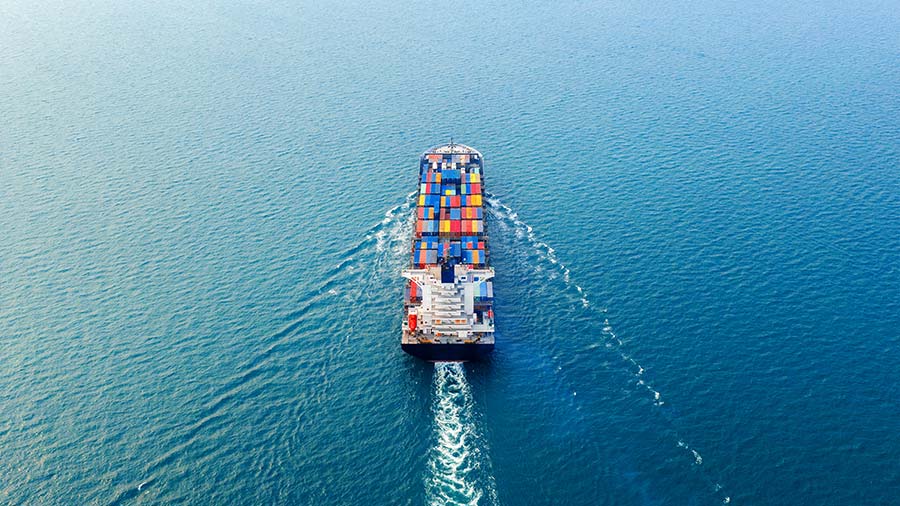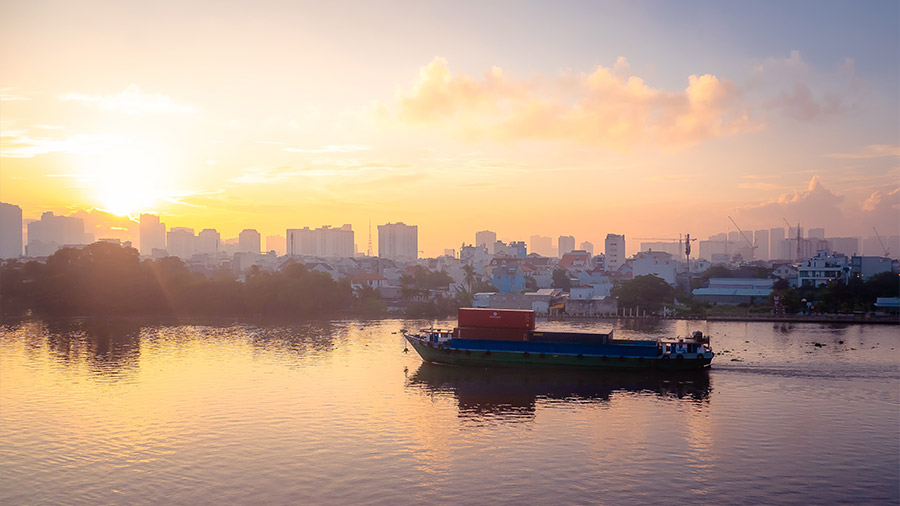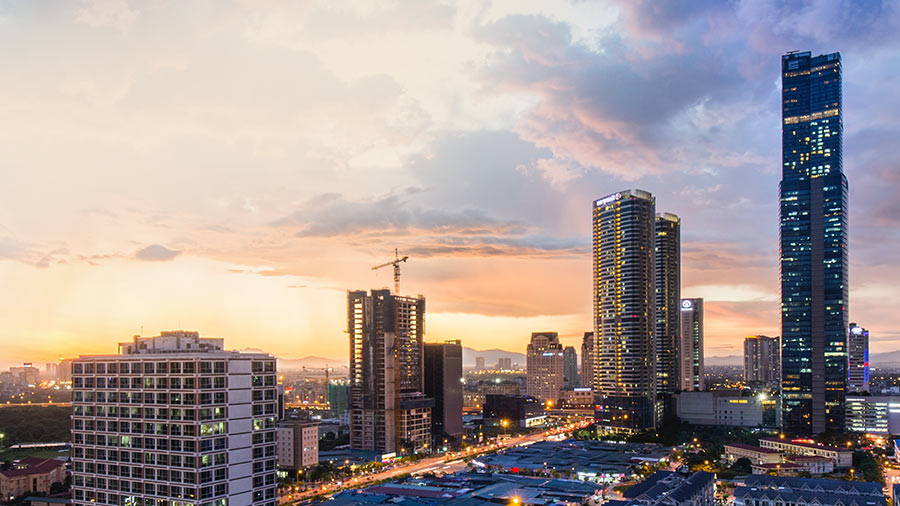What are the drivers for relocating a supply chain to Vietnam?
High growth, stable economy
Vietnam has grown its GDP by 6 to 7 percent annually, since 2016 and with steady growth for more than a decade. Despite a decline in foreign direct investment in 2021 due to the pandemic, FDI has generally grown at a rapid and constant pace since 2011, exceeding US$ 16 billion in 2019.
Its proximity to China as well as other countries in Southeast Asia ensures it can remain competitive and connected to global supply chains. While the shift in countries moving to Vietnam was already happening, the below factors have accelerated this shift. We examine key factors responsible for this acceleration.
China +1 and a China alternative
Businesses are increasingly choosing Vietnam to supplement their China operations with low-cost inputs sourced from production facilities in a nearby alternate market. In addition to its geographic proximity to China, Vietnam offers several advantages for manufacturers planning to relocate their business, including lower costs, an attractive business environment, and acts as a hedge against unpredictable scenarios which may affect supply chains in China, such as potential trade shocks. As a result, Vietnam is experiencing unprecedented growth relative to similarly emergent countries.
Demographics
Vietnam’s middle class is expected to reach 95 million by 2030 with an average GDP per capita of US$7,000 by 2035. Vietnam’s middle class is also spreading to other areas apart from traditional hubs like Hanoi and Ho Chi Minh City. In addition, the female participation rate is one of the highest even trumping more developed countries like the US and Singapore.
Political climate
Vietnam is a social republic and a one-party state, which has allowed for political stability. This has also translated to a stable business environment allowing businesses to thrive.
Vietnam’s Free Trade and Double Tax Agreements
Free Trade Agreements
Vietnam acceded into the World Trade Organization (WTO) in 2007 and is a committed trading partner with the global community today.
Vietnam is a party to 16 active and 2 others in negotiations of planned free trade agreements (FTAs) making it one of the most open economies in South East Asia. Three recent powerhouse agreements that provide additional push factors for businesses to move their supply chains into Vietnam include:
- The Regional Comprehensive Economic Partnership (RCEP);
- The European Union Vietnam Free Trade Agreement (EVFTA);
- The UK-Vietnam Free Trade Agreement (UKVFTA).
Including and beyond these agreements, Vietnam’s bilateral and multilateral Free Trade Agreements connects it with dozens of countries and regions including: Australia, Brunei, Burma, Cambodia, Canada, Chile, China, Indonesia, Japan, Laos, Malaysia, Mexico, New Zealand, Philippines, Singapore, South Korea, Thailand, United Kingdom, Vietnam, European Union Countries, Eurasian Economic Union countries.
Vietnam is also negotiating future potential agreements the European Free Trade Association comprised of Switzerland, Norway, Iceland, and Liechtenstein (Vietnam-EFTA) and the ASEAN – Canada FTA.
Double Tax Avoidance Agreements
Double Tax Avoidance Agreements treaties effectively eliminate double taxation by identifying exemptions or reducing the amount of taxes payable in Vietnam.
More than 80 countries and territories have signed DTAs in place with Vietnam, as of 2024. These treaties eliminate double taxation through identifying exemptions or reducing tax payable in Vietnam for residents of the signatories of the agreements.
It is therefore extremely worthwhile for foreign investors to be aware of which double taxation avoidance agreements (DTAAs) between Vietnam and other countries might be applicable to their situation, as well as understand how these agreements are applied.
Lower costs, ease of doing business
Labor availability in Vietnam
Vietnam has a population of over 100 million people spread over 330,000 square kilometers. The country is still predominately rural, with urban centers providing a home for just 35 percent of the population. Companies entering Vietnam for the first time should account for regional variation in the labor market and invest in locations that are suitable for their industry.
Minimum Wages in Vietnam depend on location, which the government categorizes into four regions. Under the new policy effective July 1, 2024, the minimum wage ranges from VND 16,600 (US$0.65) per hour and VND 3.45 million (US$135.30) per month in Region 4, to VND 23,800 (US$0.93) per hour and VND 4.96 million (US$194.50) per month in Region 1. This adjustment, reflecting a 6 percent increase under Decree 74/2024/ND-CP, aims to improve workers’ living standards in line with the country’s economic growth and changing administrative boundaries.
Investors that take the time to explore Vietnam’s provinces will find opportunities to manage costs while maintaining productivity. Executives will benefit from understanding the cost differential between different provinces in Vietnam, but the real beneficiaries of a regional approach will be HR departments and hiring managers. HR departments that understand what Vietnam has to offer will be much better positioned to recruit, onboard, and, where necessary, train new workers.
As Vietnam develops into a prominent regional manufacturing hub, companies entering the market need to consider workforce availability and implement appropriate HR strategies to source workforce as well as attract and retain the best talent.
Regulatory environment
The regulatory environment encompasses several factors: political environment, policies, environment laws, the complexity of regulations, etc. Depending on the industry this can range from administrative procedures, permits, fees, taxes, and time needed to set up a factory.
Vietnam’s regulatory regimes and commercial law, and the overlapping jurisdictions of some government ministries, can also be challenging for foreign businesses. However, Vietnam’s gradually improving regulatory environment has made operating businesses easier. The Vietnamese government is committed to taking steps to improve consistency in policies, financial transparency, as well as corporate disclosure standards to mitigate due diligence and KYC challenges and encourage foreign investment into the country.
Top industries relocating to Vietnam
Vietnam is a large and diverse country with several industries thriving. As Vietnam moves from agriculture to service to high-tech manufacturing, certain industries are becoming more prominent than others due to increased investment and government incentives.
As of 2024, the total registered FDI in Vietnam reached nearly US$38.23 billion, marking a substantial 3 percent increase from the same period the previous year.
Newly registered capital reached almost US$19.73 billion, reflecting a slight drop of 7.6 percent. The number of newly registered projects also reached 3,375 projects, an increase of 1.8 percent.
As in previous years, the manufacturing and processing industry led the way, attracting over US$25.58 billion in investment, accounting for 66.9 percent of the total registered capital and a 1.1 percent increase from the previous year. The real estate business sector followed with nearly US$6.31 billion in total investment, representing over 16.5 percent of the total registered capital and a 18.8 percent year-on-year increase.
Other sectors such as electricity production and distribution and wholesale and retail secured the third and fourth positions, registering total registered capital of over US$1.42 billion and nearly US$1.41 billion respectively.










